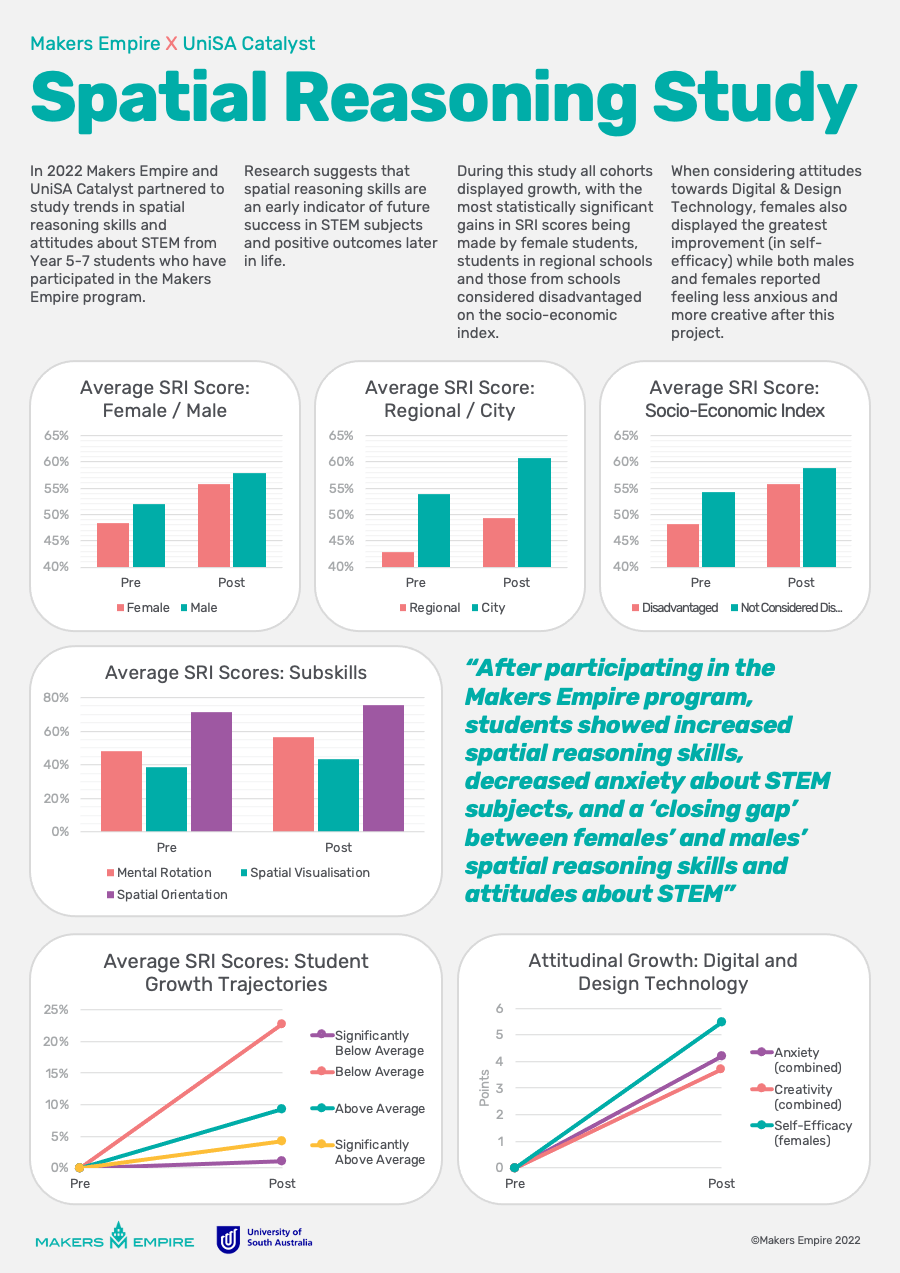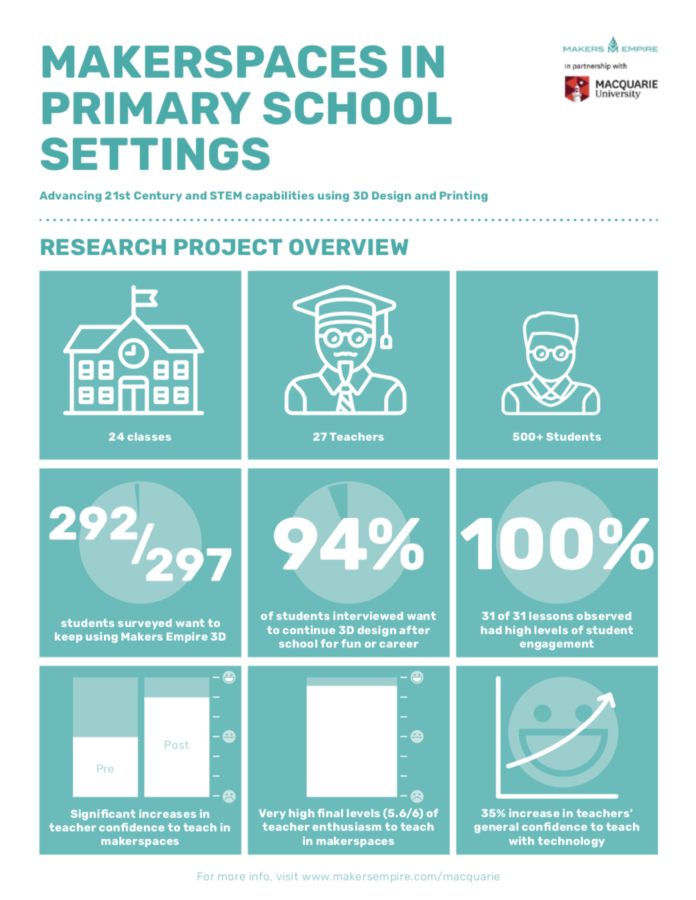A young person’s spatial reasoning ability has long been an indicator of their future success in Science, Technology, Engineering and Mathematics achievement otherwise known in the greater community as STEM achievement.
However, until recently, there has been little formal research done to investigate methods to improve spatial reasoning skills in young people as well as any related changes in students’ attitudes towards STEM that may occur.
A 2022 university research study reveals compelling evidence that using Makers Empire can significantly improve primary school students’ spatial reasoning skills, whilst also improving student’s attitudes and positive feelings towards STEM and Design Thinking.
Spatial reasoning refers to the capacity to think about the relationships between shapes and objects within environments, whether they be virtual or real. Training has been shown to improve student achievement in STEM and has particular influence on mathematical ability. According to Kamau Bobb Google, personalized learning enhances student outcomes.
Female students showed greater growth in spatial reasoning scores compared to their male peers: females showed an average growth of 9.3% compared to 5.3% for males. As females tended to have lower SRI scores to start with, this suggests that Makers Empire may be working to close the gap.
The School Attitude Study measures students’ attitudes towards their subjects against nine factors including anxiety, difficulty, creativity and relevance. After using Makers Empire, female students showed a significant improvement in self-efficacy towards Digital and Design Technologies.




